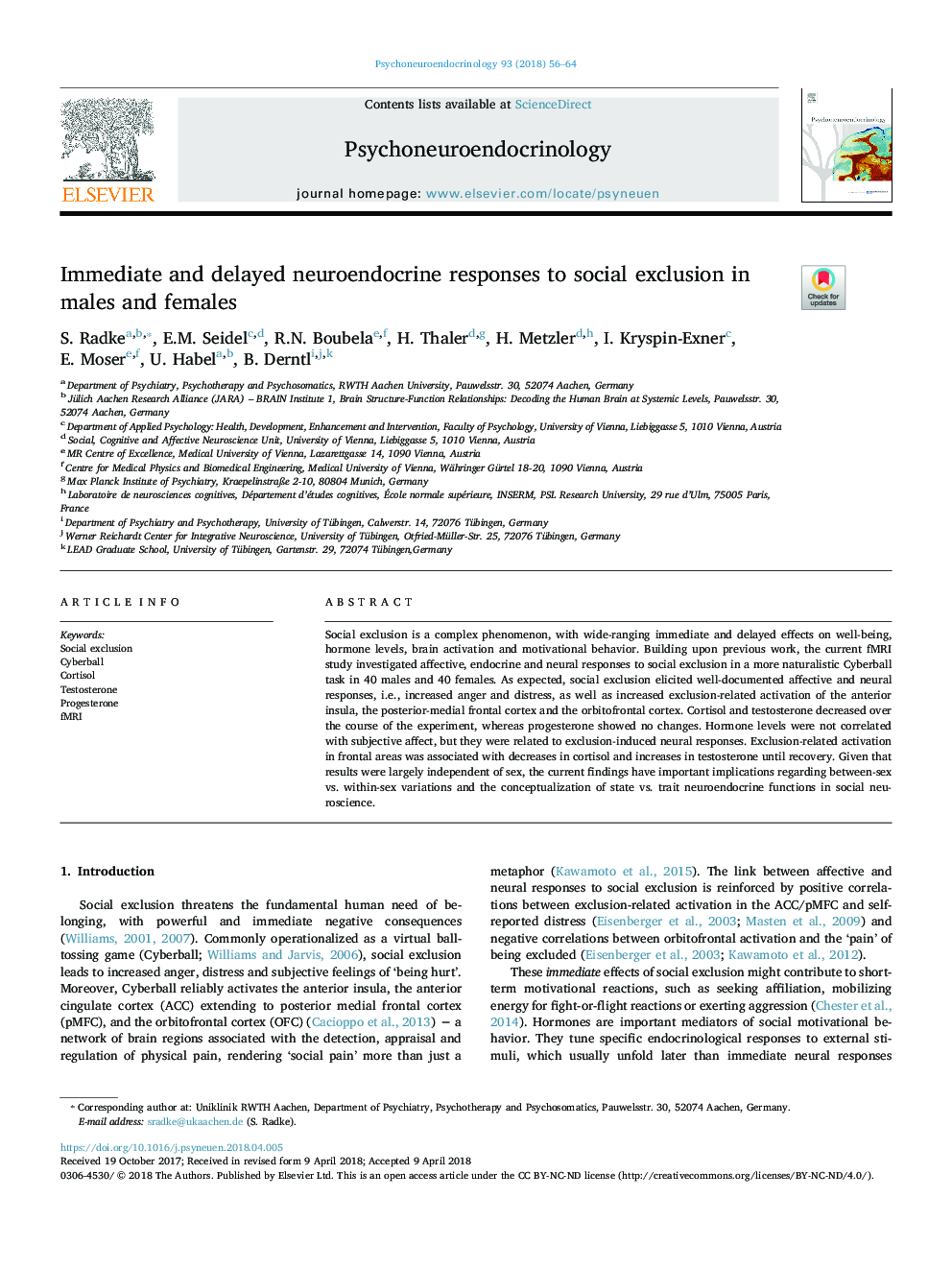| Article ID | Journal | Published Year | Pages | File Type |
|---|---|---|---|---|
| 6817615 | Psychoneuroendocrinology | 2018 | 9 Pages |
Abstract
Social exclusion is a complex phenomenon, with wide-ranging immediate and delayed effects on well-being, hormone levels, brain activation and motivational behavior. Building upon previous work, the current fMRI study investigated affective, endocrine and neural responses to social exclusion in a more naturalistic Cyberball task in 40 males and 40 females. As expected, social exclusion elicited well-documented affective and neural responses, i.e., increased anger and distress, as well as increased exclusion-related activation of the anterior insula, the posterior-medial frontal cortex and the orbitofrontal cortex. Cortisol and testosterone decreased over the course of the experiment, whereas progesterone showed no changes. Hormone levels were not correlated with subjective affect, but they were related to exclusion-induced neural responses. Exclusion-related activation in frontal areas was associated with decreases in cortisol and increases in testosterone until recovery. Given that results were largely independent of sex, the current findings have important implications regarding between-sex vs. within-sex variations and the conceptualization of state vs. trait neuroendocrine functions in social neuroscience.
Related Topics
Life Sciences
Biochemistry, Genetics and Molecular Biology
Endocrinology
Authors
S. Radke, E.M. Seidel, R.N. Boubela, H. Thaler, H. Metzler, I. Kryspin-Exner, E. Moser, U. Habel, B. Derntl,
